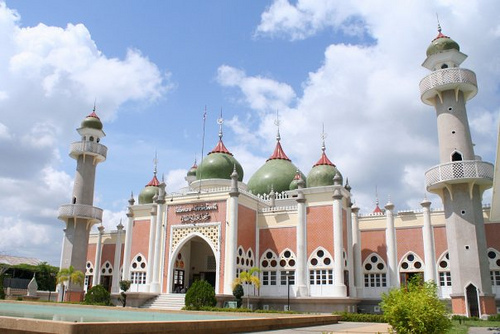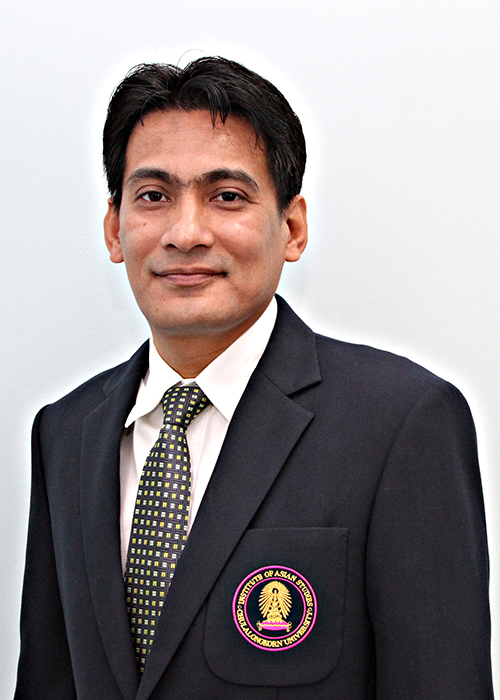
- 24 Apr 2019
Transnational Connections of Muslim Movements in Thailand
Transnational Connections of Muslim Movements in Thailand
by Dr Srawut Aree
This seminar explains how the religious economy of Thailand’s Malay-majority far southern provinces have been influenced by a range of South Asian and Middle Eastern Islamic movements. After a brief reference to how Nile Green has developed the concept of “religious economy”, I offer a typology of transnational “reformist”, “revivalist”, and “modernist” franchises, and their impact on the “traditionalist” monopoly in the Thai provinces of Pattani, Yala, and Narathiwat. This is followed by case-studies of the personalities involved in the establishment of these transnational movements. We argue that those originating in South Asia have been just as — if not more — influential as those possessing ideological and financial links to the Middle East. Furthermore, on the basis of where and when transnational franchises established themselves in South Thailand since the 1960s, their local impact on the religious economy can be attributed to their cumulative effect.
The Arrival of the Ahmadiya-Idrisiyya and the Mecca-based ‘Patani School’
by Dr Christopher M. Joll
In this seminar, I present some of my findings from a recently completed multi-site study of Sufism in Thailand. I summarise the range of personalities and historical processes involved in the introduction of the Ahmadiya-Idrisiyya from the Hijaz to Kelantan and Patani. I point out how this case differs from that of the Qadiriya wa Naqshabandiya, introduced to Ayutthaya (late 1890s), and the Ahmadiyya-Shadhiliya, whose founding sheikh arrived in Bangkok in 1927. Few studies of Sufism are complete without details of the silsilah of influential murshid (Ar. Sufi guides). While these will be included, my interests are in what the arrival of the Ahmadiya-Idrisiyya tells us about the Mecca-based “Patani School”, and their agenda in the late 1890s. I argue that this confirms Sheikh Ahmad al-fatani’s reputation as a progressive intellectual force, and offer suggestions on why he advocated the “juristic Sufism” of Sheikh Ahmad Ibn Idris.
About the Speakers

Director
Muslim Studies Centre
Chulalongkorn University’s
Institute of Asian Studies
Dr Christopher M. Joll
Research Fellow
Victoria University of Wellington’s
Religious Studies Program
Dr Srawut Aree is the director of the Muslim Studies Centre, at Chulalongkorn University’s Institute of Asian studies. He attained his PhD in 2002 from the Department of Western Asian Studies at Aligarh Muslim University. His most recent publications are The Role of Islam in Contributing to the Construction of the ASEAN Socio-Cultural (2018), and Moderation: An Islamic Approach in the Contemporary World Community (co-edited with Shekh Mohammad Altafur Rahman, 2018).

Dr Christopher M. Joll is a New Zealand anthropologist, who has been based in Thailand for 19 years. He is currently a research fellow at the Victoria University of Wellington’s Religious Studies Program and visiting research fellow at the Chulalongkorn University’s Muslim Studies Centre. He completed his PhD (UKM, 2009) near the end of his ten years living and working in Patani/Pattani. An expanded version of which was published as Muslim merit-making in Thailand’s far-south (Springer, 2011) explored modern Malayness, linguistic change, and religious reform among bilingual urban Malays in Patani/Pattani. Since late-2012, Chris has conducted multi-sited fieldwork (between Ayutthaya and Narathiwat) among Muslim groups influenced by Sufism. Changing his ethnographic subject required him to add visual methods to his methodological toolkit and introduced him to the history and cultural geography of Thailand’s diverse Muslim minority. He also writes on the role of language loss and language policy in sub-national conflicts.
Event Details
Block B, 29 Heng Mui Keng Terrace
Singapore 119620




